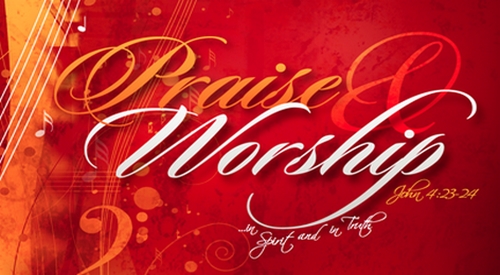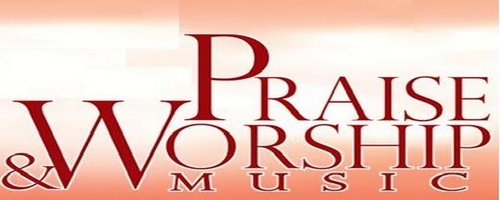Praise and Worship Music
What is Praise and Worship Music
Praise and worship music (Christian) is music that has been written during the last two thousand years to express either personal or a communal belief regarding Christian life and faith. Common themes of Christian music include praise, worship, repentance, and its forms vary widely across the world.
Like other forms of praise and worship music, the creation, performance, significance, and even the definition of Christian music varies according to culture and social context. Christian music is composed and performed for many purposes, ranging from artistic pleasure, religious or ceremonial purposes, or as an entertainment product for the marketplace.
The most prevalent uses of Christian music are at religious or worship services, most frequently at church buildings on a Sunday morning, but they may also be held on other days and nights of the week or at other venues. Most Christian music involves singing, whether by the whole congregation (assembly) or by a choir, or worship band.

History of Praise and Worship Music
The Christian church of the first two centuries sought to avoid any mixing of pagan musical practices with their own religious experiences. Clement, for instance, forbade the singing of psalms and the reading of Scriptures in profane meetings so that Christians would not be confused with the "wandering minstrels, singers and tellers of tales of high adventure, who perform their art for a mouthful of bread." All instruments were banned from Christian worship due to their association with pagan ceremonies and the low reputation of instrumental musicians. Although there are numerous references in the Old Testament to instrumental accompaniment in Jewish worship, by the end of the first century even the Jews no longer featured instruments in their liturgy. Musical instruments were absent from the synagogues since the Exile, and with the destruction of the Temple in 70 AD instruments disappeared from Jewish liturgy altogether.
Unlike the mystery cults that believed in the power of musical incantations, the early church Fathers affirmed that the word (logos) held primacy over the music. The early church Fathers often admonished musicians to keep the words audible and to avoid excessive musical elaboration. Solo songs and unison chants were preferred features of musical worship in that day. Writings by Basil indicate that men, women, and children all participated in singing. The texts for the songs were based upon Old Testament scriptures (principally psalms) or drawn from Christian doctrine found in writings comprising the New Testament. (From Wikipedia)
Does it Glorify Jesus
To me, Christian music (worship music) should praise and glorify the Lord Jesus Christ.
“Let the message about Christ, in all its richness, fill your lives. Teach and counsel each other with all the wisdom he gives. Sing psalms and hymns and spiritual songs to God with thankful hearts. And whatever you do or say, do it as a representative of the Lord Jesus, giving thanks through him to God the Father.” (Col 3:16-17 NLT)
“Sing praises to God, our strength. Sing to the God of Jacob.” (Psalm 81:1 NLT)
Do you know that God sings to us? Yes, he does. Read what it says in Zephaniah 3:17.
“The LORD your God in your midst,
The Mighty One, will save;
He will rejoice over you with gladness,
He will quiet you with His love,
He will rejoice over you with singing.” (NKJ)
Wow, how amazing is that! How beautiful and comforting it is to know that the heavenly Father sings over his children.
Since I’m a worshiper, I want to bless the Lord with songs of praise and worship. I want to sing songs that glorify Him, honor Him, to sing about who He is and what He has done for us. In today’s Christian music, these kinds of songs are becoming harder to find. More and more Christian songs are focusing too much on me, myself and I. If we are not worshiping the Lord Jesus Christ in our songs then we are not singing true Christian songs.
I realize that some of the music that falls under the Christian banner is not really Christian at all. I must take a stand regarding Christian Punk, Christian Metal, Christian Hardcore and even some of the Christian Rock music. I can’t believe this music honors, glorifies and worships Jesus. Can you imagine this kind of music in heaven? Would the angels be screaming their worship at our Lord? Does this music please Jesus or is it pleasing man? Unfortunately, some Christians believe that we have to follow the world’s standards to reach our youth. Why? If the youth are born-again believers then their focus should be singing music that exalts their King. The Christian youth should set the standard for the world to follow and not the other way around.

Of course, not all Christian music mentioned above fails to be true worship music. There are some powerful songs about Jesus that are true worship songs and there are many anointed songwriters that focus totally on His majesty. Even though some of these songs don't mention the name of Jesus, we still know through the lyrics that we are praising and worshiping the Lord Jesus Christ.
Contemporary Christian Music
“But as for me, I will sing about your power.
Each morning I will sing with joy about your unfailing love.
“Shout joyful praises to God, all the earth!
Return to Praise and Worship Home Page
Christian Gospel Music
and Christian Hymns.
"Sing praises to God, sing praises; sing praises to our King, sing praises!" (Psalm 47:6 NLT)
For you have been my refuge,
a place of safety when I am in distress.
O my Strength, to you I sing praises,
for you, O God, are my refuge,
the God who shows me unfailing love.” (Psalm 59:16-17 NLT)
Sing about the glory of his name!
Tell the world how glorious he is.
Say to God, “How awesome are your deeds!
Your enemies cringe before your mighty power.
Everything on earth will worship you;
they will sing your praises,
shouting your name in glorious songs.” (Psalm 66:1-4 NLT)





